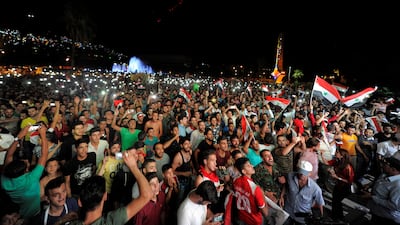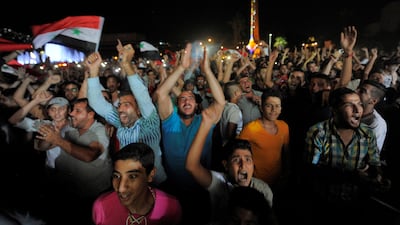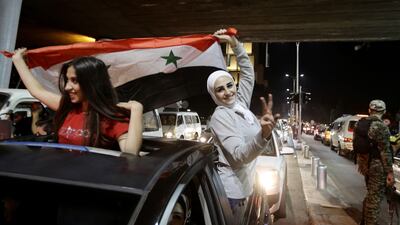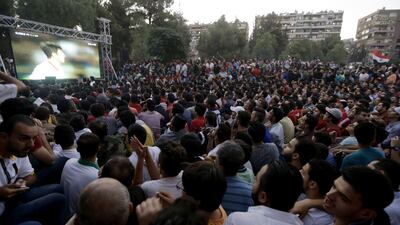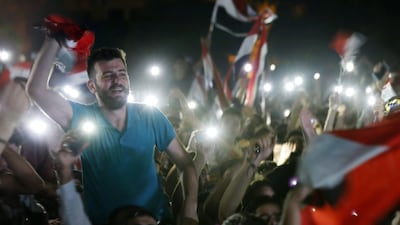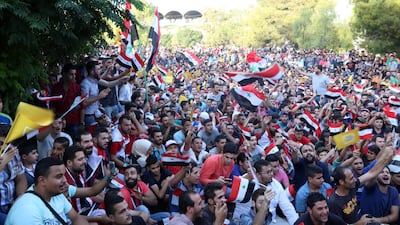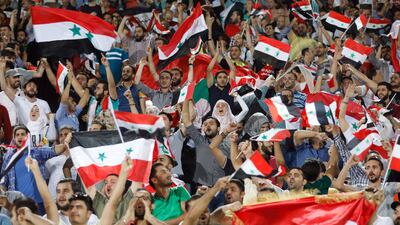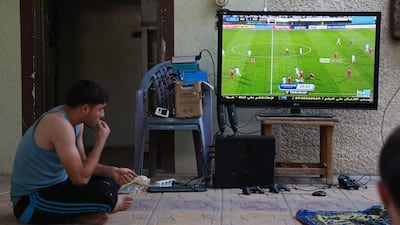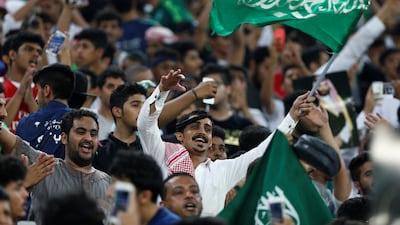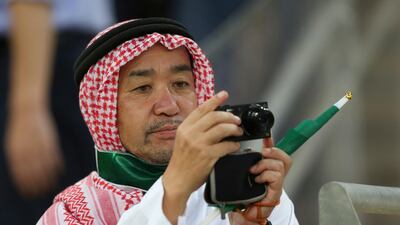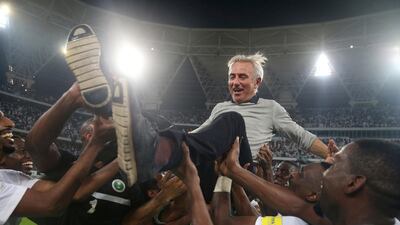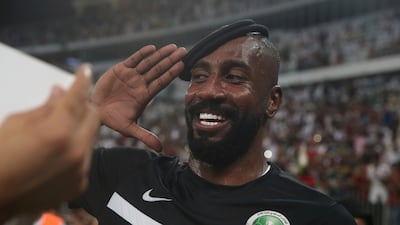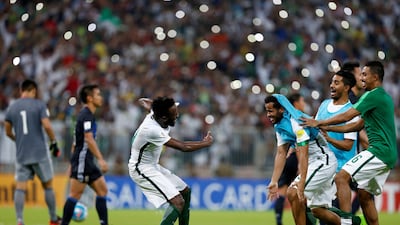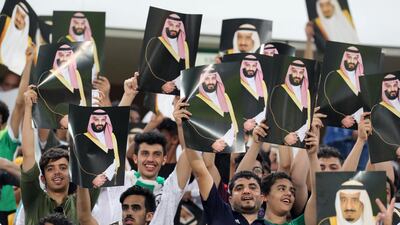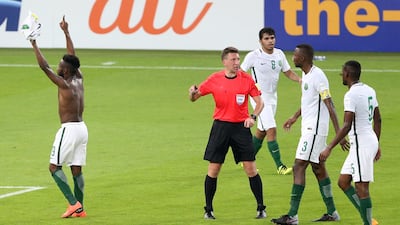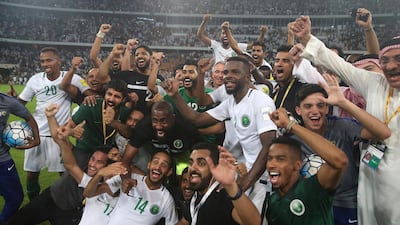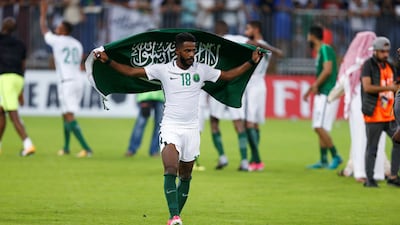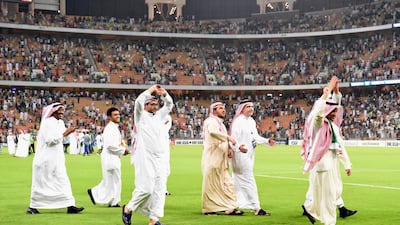Six years ago, Syrian striker Firas Al Khatib was helping to rally opposition against the government of Syrian president Bashar Al Assad, later promising he would “never play for the Syrian national [football] team as long as there are bombs falling anywhere in Syria”.
Now, there are still bombs falling on Syria but on Tuesday Al Khatib was back playing with the team when it tied in a match with Iran, securing its place in the Asian play-offs next month towards possible qualification for the 2018 World Cup.
The Syrian national football team has never advanced to the tournament, and was facing elimination had it lost the match.
Al Khatib was not the only top player to return to the Syrian team for its World Cup bid this year. It was striker Omar Al Soma, absent from the team since 2012 because of his opposition to the Syrian government, who scored the tying goal on Tuesday in stoppage time, keeping Syria’s World Cup hopes alive.
Al Khatib softened his stance towards playing for the national team in January, telling reporters that if he were asked to play then he would "accept naturally because it would be an honour for a sportsman to represent his country and his team”. He returned to the team in February with Al Soma joining him three months later.
With Syria still very much in the throes of a six-year-old civil war that has killed nearly half a million people and displaced millions more, many fans urged a suspension of politics in order to enjoy the match on Tuesday. But others were quick to politicise the event.
_______________
Read more:
Syria claim play-off spot after draw against Iran
Assad used Russian-built plane to conduct sarin gas attack, UN investigators say
Targeted by Assad, Syrian athletes fight to keep sport alive
_______________
A live feed on Facebook early on Wednesday morning showed fans waiting at Damascus airport for the team’s return.
Their chants included praise for Mukhabbarat Al Joweiya — perhaps the most feared branch of the government’s intelligence apparatus.
“We are all Mukhabbarat Joweiya, for the eyes of Abu Hafez,” they chanted, using a nickname for Mr Al Assad.
“This is not Syria’s team, this is Al Assad’s team,” read one Facebook post, espousing a popular criticism of the team. Others on social media called out players for their political affiliations, with some posting pictures of the goalkeeper in a Syrian army uniform.
Fans living in both government and rebel-held areas watched the match, including in the northwestern province of Idlib which is mostly controlled by the Hayat Tahrir Al Sham militant alliance. The group is dominated by Jabhat Fatah Al Sham, Al Qaeda's former affiliate in Syria.
“We were waiting for the game eagerly,” said Ammar, a resident of the rebel-controlled Damascus suburb of Douma who asked that his last name not appear in print.
“Even though we are opposed to the regime that is killing us. But we look at this team as a team playing in the name of Syria.”
But despite being a self-professed lifelong fan of Syria's national football team, Ammar criticised the regime for trying to take advantage of its popularity.
“The regime has never cared about Syria before or after the war,” Ammar said. “Now it wants to climb on the success of the Syrian players.”
State television showed the game live, and many viewed it on big screens, including in the capital’s Ummayid Square and at Al Jalaa, the country’s main football stadium.
The Associated Press reported that many shops had closed and streets were largely empty even hours before the game began. But Ammar said the government did not stop shelling his neighbourhood in the hours leading up to the match.
“Even before the game, it fired shells at civilians, killing six civilians, including children and paramedics,” he said.
Some football fans also celebrated what they called a second victory on Tuesday: the breaking of ISIL's months-long siege on the eastern city of Deir Ezzour by the Syrian army and its allies.
"There are two victories today: the army entered Deir Ezzour and we equalised with Iran, which I consider a victory," Fayeq Shmais, a 46-year-old government employee told AP.
“Syria is witnessing a revival as large rallies roam the streets of Damascus. This is something we have not seen since the start of the crisis."
But Ammar said he rejected that the football team's success was "a continuation of its alleged military victory”.
“The Syrian team is a team for all Syrians,” he added.
Syria’s play-off match next month will be against Australia. The winner will join South Korea, Saudi Arabia, Iran and Japan, the Asian teams which have already qualified for the Russia-hosted tournament.
